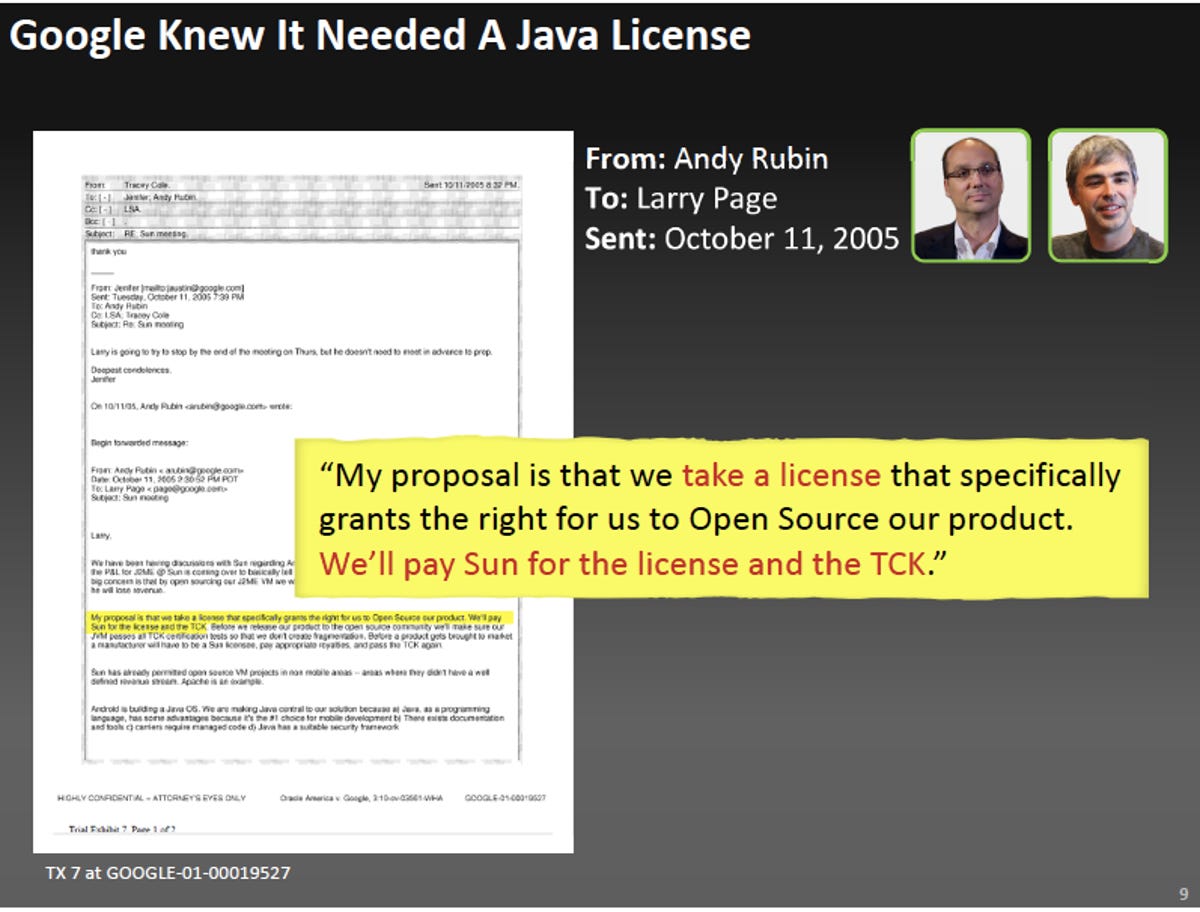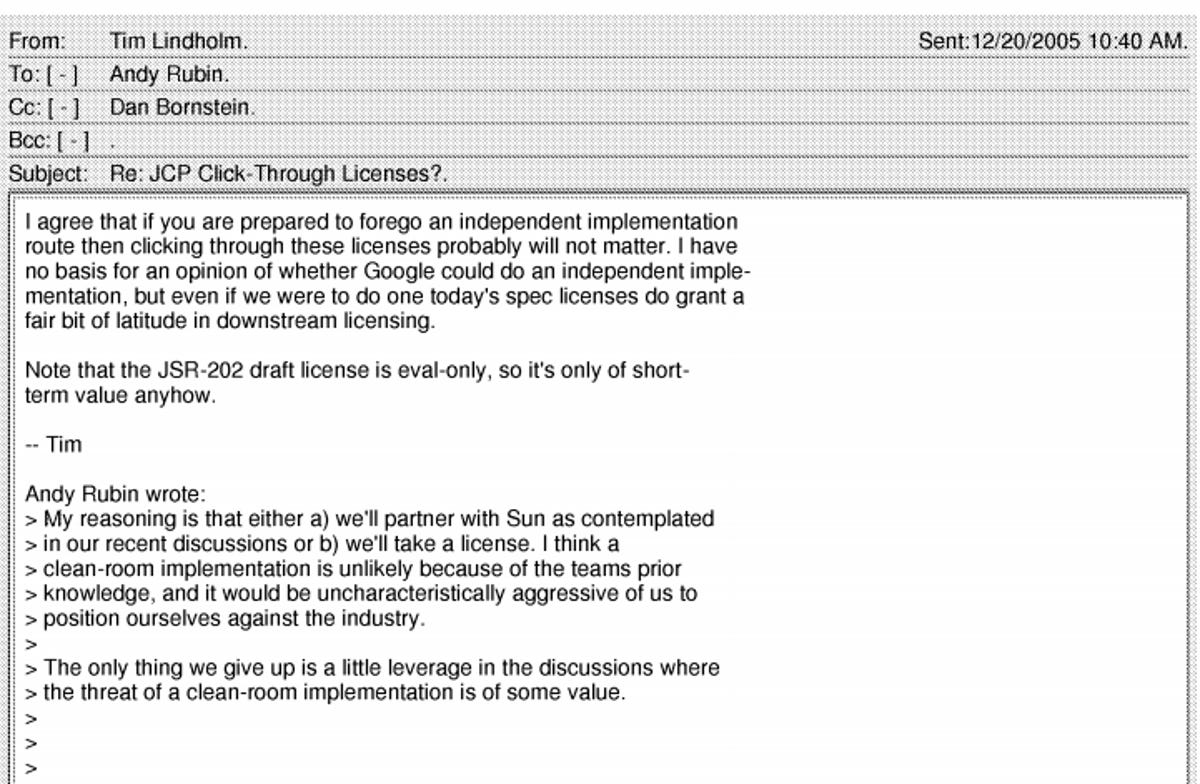Last updated: 9:30 PM PT
As the second week of the Oracle-Google trial got underway Monday, Andy Rubin, the man behind the Android platform, took his turn on the witness stand. Oracle’s lead lawyer, David Boies, quickly got to his main point in taking Rubin through a series of emails from 2005 and 2006.
He established that Rubin knew that he didn’t need a license for the Java programming language, but that the emails made clear during that period of Android’s development he thought Google would need a partnership with Sun or a TCK license from Sun, and that the java.lang APIs were subject to copyright.
“Those were options at the time,” Rubin said regarding whether to partner with Sun or acquire a license.


Oracle
Boies then went on to Rubin’s email statement that a “cleanroom version of the Java Virtual Machine (JVM) would be unlikely because of the Android team’s prior knowledge of Java. Several of them were key members of Sun’s Java development group.
“I think that is reading a lot into that small sentence,” Rubin said.
Boies re-read the sentence to Rubin.
“We were contemplating development. At this time I am unsure as to whether it had begun or not. We hadn’t actually made a decision to implement a cleanroom VM at this point,” Rubin said
Boies pointed Rubin to the Android GPS presentation from July 26, 2005, which he told executives at Google that a cleanroom implementation of the JVM is unlikely.
On October 11, 2005, Rubin wrote Google co-founder Larry Page about the need to take a license from Sun:
“My proposal is that we take a license that specifically grants the right for us to Open Source our product. We’ll pay Sun for the license and the TCK. Before we release our product to the open source community we’ll make sure our JVM passes all TCK certification tests so that we don’t create fragmentation.”
The smoking gun as it relates the API copyright issue came in a March 24, 2006 email in which Rubin said he didn’t see how Google could open Java without Sun since Sun’s owns the intellectual property and the brand.
Boies asked Rubin if he meant that he needed a Sun agreement or permission. Rubin responded, “Yes, that’s correct.”
Boies then pointed to Rubin’s statement in an email of the same day that java.lang APIs are copyrighted. “You meant copyright by Sun?,” Boies asked.
Rubin responded, “I didn’t exactly say that …in the context of this I think that means that the APIs were copyrighted.”
Oracle is contending that 37 Java APIs used in Android are subject to copyright. In contrast to Rubin’s 2006 statement on APIs, Google’s lead lawyer Robert Van Nest said last week, “This copyright claim is a little crazy…that’s a lawyer made up thing.” Google also maintains that Android’s 15 million lines of code don’t infringe on any Oracle intellectual property. Oracle is asking for $1 billion in damages from Google.
Rubin’s testimony with Boies will continue Tuesday morning. Google’s lawyers will call him when they begin their case, and Rubin will have to explain how his thinking or interpretation about licensing and API copyright changed over the years.


Oracle v. Google trial exhibit 12
See also: Full coverage: Oracle v. Google
See also: Android, Java, and the tech behind Oracle v. Google (FAQ)
See also: Google’s Tim Lindholm faces off with David Boies on Java license



